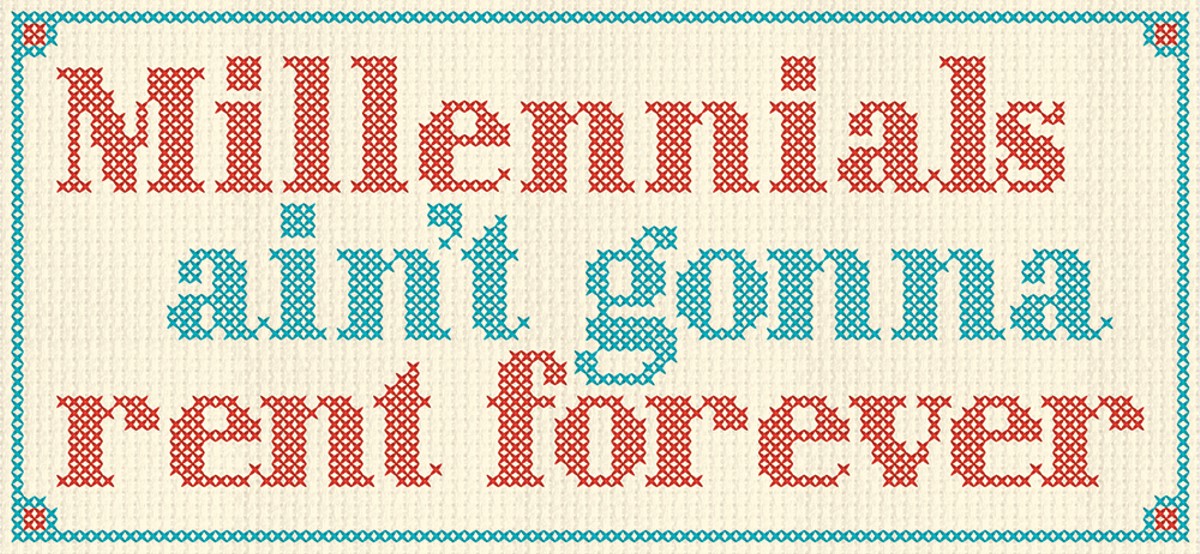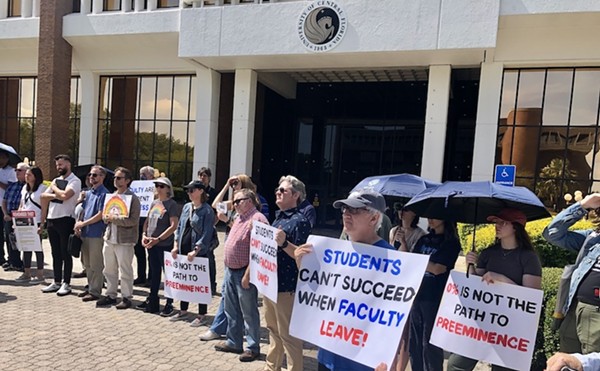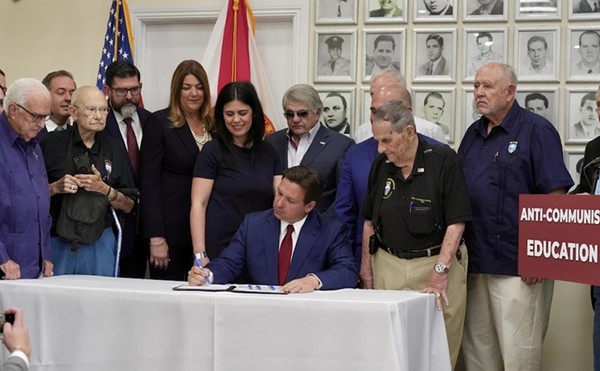A common refrain heard when discussing real estate is that Millennials don't want to buy houses. They prefer renting in urban markets and will continue to fundamentally shift money away from the suburbs. Take articles like "Millennials Will Live in Cities Unlike Anything We've Ever Seen Before," which ran on Gizmodo last July, or "Young People Can Afford Homes, They Just Don't Want to Be Homeowners," from Fortune magazine's website last August.
Jed Kolko, senior fellow at the Terner Center for Housing Innovation, ties this to the decline in marriage rates: "The share of young adults living with their parents increased in 2015," he writes. "One contributing factor [to their lower home ownership rates] is that 25- to 34-year-olds are decreasingly likely to be married or cohabitating with a partner, and – unsurprisingly – married or cohabitating young adults rarely live with their parents."
Gregg Logan, a managing director at real estate advisers RCL Co., believes this is simply not the case.
"It's media mythology that [Millennials] aren't in the home market," says Logan, who also serves as a professor of real estate economics at Rollins College. "When you track home sales by age you find that Millennials bought as many homes as Boomers did last year."
In fact, Millennials make up a third of home buyers. First-time purchasers are down from when their parents were buying their first places in 1981 – from 40 percent to roughly 33 percent now. But this still represents a major segment, and the reasons for the decline are much more related to circumstances than preferences.
According to a presentation Logan gave to the Urban Land Institute earlier this year, one factor is that younger people are delaying the noteworthy life decisions that usually precede home purchase, such as getting married or having children. This might be due to another contributing aspect: Millennials are saddled with more student debt than any previous generation, and, not coincidentally, the lowest average credit scores. Combine that with coming of age during the Great Recession when unemployment was high and the credit markets suddenly froze, and you have a recipe for a shrinking home market.
Most surveys indicate that if the financial situation changes, so will the preferences. For example, the Federal Reserve Bank of New York Survey of Consumer Expectations found that 44 percent of renters believe they will buy when they move within the next three years.
Logan sees another reason the percentage of buyers from this generation has dropped. Millennials are the most diverse of any recent generation, with 43 percent identifying as non-white. Yet whites still make up a significant majority in the market. "When you look at black and Hispanic buyers, there has been less wealth creation," says Logan. "White households have had more generations to create wealth."
"So let's do the math," Logan says. If you only look at the effect of people putting off life decisions and add in a new expanded population of people historically without the affluent household income to become buyers, "those two things by themselves mean that demand from that generation is going to be less.
"The key thing is that it doesn't mean [demand] is going to be nothing, which is the impression you get in the media," says Logan.
The narrative is that Millennials are choosing to stay in hip, urbanist neighborhoods out of lifestyle and environmental concerns. Logan agrees they have had influence on certain changes in the building market. However, most surveys indicate that if the financial situation changes, so will the preferences. While mixed-use and urban design are likely here to stay, Logan concludes that the future will look more like the past in terms of home ownership than we've been led to believe. "An improving economy, greater access to credit, and the sheer size of this generation of young consumers" means the turnaround is just a matter of time.




















